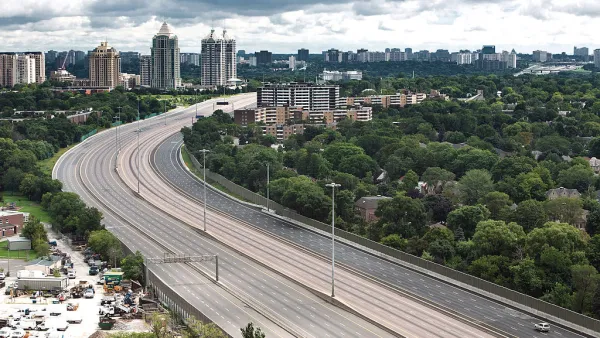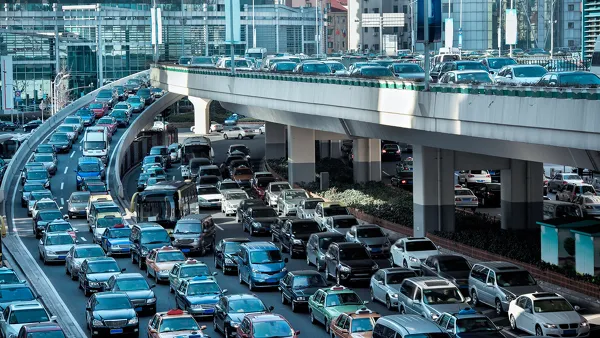In a policy analysis for the Cato Institute, Randal O'Toole reviews plans for more than 75 of the nation's largest metropolitan areas reveals that virtually all of them fail to follow standard planning methods, and half of them are not effective.
Randall O'Toole find that nearly half the 75 plans reviewed for his analysis are "not cost effective in meeting transportation goals. These plans rely heavily on behavioral tools such as land-use regulation, subsidies to dense or mixed-use developments, and construction of expensive rail transit lines. Nearly 40 years of experience with such tools has shown that they are expensive but provide negligible transportation benefits.
Long-range transportation planning necessarily depends on uncertain forecasts. Planners also set qualitative goals such as 'vibrant communities' and quantifiable but incomparable goals such as 'protecting historic resources.' Such vagaries result in a politicized process that cannot hope to find the most effective transportation solutions. Thus, long-range planning has contributed to, rather than prevented, the hextupling of congestion American urban areas have suffered since 1982."
From the conclusion of the analysis:
"It comes down to this: Government planners can't accurately predict what future generations
will want or need, yet long-range transportation plans can lock agencies into plans and projects that make no sense. Twenty years ago no one predicted that the Internet would lead telecommuters to outnumber
transit riders in the vast majority of urban areas, or that intercity bus service (driven by online ticket sales) would be growing for the first time in decades, or that FedEx, UPS, and DHL would be making daily deliveries of online purchases on almost every residential street in America. Just as plans written 20 years ago would be wrong about those things today, plans written today for 20 years from now will also be wrong.
In short, any long-range plan is guaranteed to be wrong. Yet, as Drucker observed, that fact that it is a government plan makes it is very hard to change. That means long range transportation plans are locking more and more urban areas into dubious programs of increased congestion (in the hope of discouraging a few vehicle miles of travel), unaffordable housing (in the hope of encouraging a few more people to crowd into transit-oriented developments), and costly rail projects the environmental and transportation benefits of which are dubious at best."
Thanks to Peter Gordon
FULL STORY: Roadmap to Gridlock: The Failure of Long-Range Metropolitan Transportation Planning

Analysis: Cybertruck Fatality Rate Far Exceeds That of Ford Pinto
The Tesla Cybertruck was recalled seven times last year.

National Parks Layoffs Will Cause Communities to Lose Billions
Thousands of essential park workers were laid off this week, just before the busy spring break season.

Retro-silient?: America’s First “Eco-burb,” The Woodlands Turns 50
A master-planned community north of Houston offers lessons on green infrastructure and resilient design, but falls short of its founder’s lofty affordability and walkability goals.

Test News Post 1
This is a summary

Analysis: Cybertruck Fatality Rate Far Exceeds That of Ford Pinto
The Tesla Cybertruck was recalled seven times last year.

Test News Headline 46
Test for the image on the front page.
Urban Design for Planners 1: Software Tools
This six-course series explores essential urban design concepts using open source software and equips planners with the tools they need to participate fully in the urban design process.
Planning for Universal Design
Learn the tools for implementing Universal Design in planning regulations.
EMC Planning Group, Inc.
Planetizen
Planetizen
Mpact (formerly Rail~Volution)
Great Falls Development Authority, Inc.
HUDs Office of Policy Development and Research
NYU Wagner Graduate School of Public Service



























